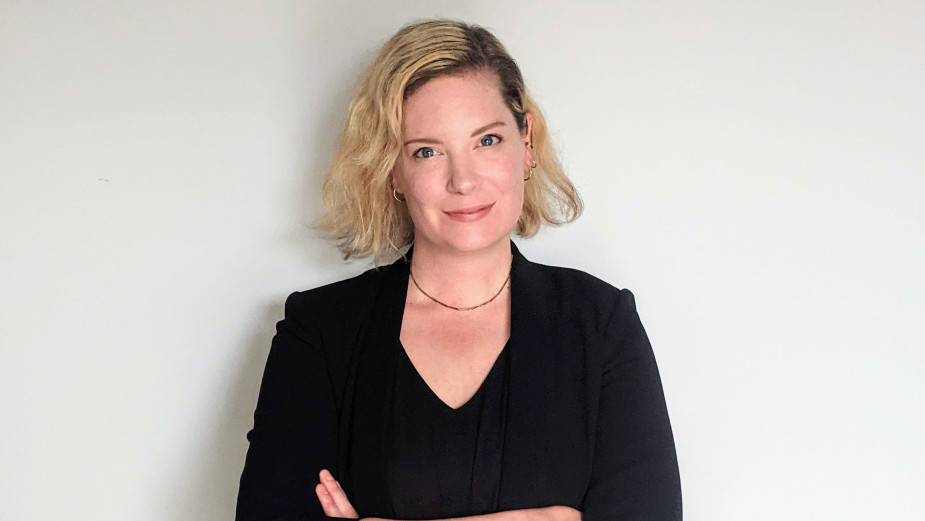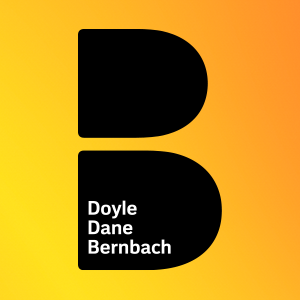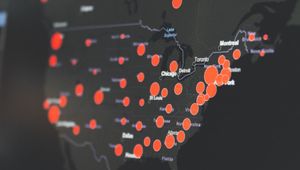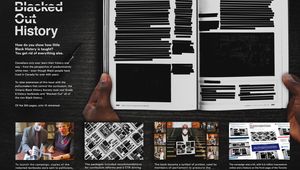
Planning for the Best: Harnessing Design Thinking and Collaboration with Allison Canagasaby

As strategy lead for DDB Toronto, Allison Canagasaby brings a unique combination of skills and experience from brand positioning to large-scale communications planning, and roots in data-driven CRM and digital disciplines that allow her to foster a range of strategy talent in her team and tackle whatever challenges clients are facing. With a passion for collaboration, she helps bring clients, media and creative partners together to develop a customer-centric vision that can be executed across an ecosystem of experiences and touchpoints.
In her 15 years’ experience, she has worked on global and local brands from multiple industries in both B2C and B2B, including Telco (Rogers, Shaw Communications), Logistics (FedEx International), Automotive (Audi, Harley-Davidson, Mercedes), CPG (Nestle, Henkel, Mars, Pepsi), Financial (Scotiabank, RBC, Chase) and Not for Profit (Camp Oochigeas).
LBB> What do you think is the difference between a strategist and a planner? Is there one?
Allison> I don’t think there’s a difference, and much like the strategy discipline, the titles are evolving. In my experience, 'planner' has typically been associated with more traditional forms like account planning and 'strategist' with comparatively newer forms like digital or comms. That said, modern strategy departments have a mix of specialists in these areas and generalists who wear many hats, so keeping this distinction just adds confusion. We’re all developing strategy, so strategist is more fitting to me.
LBB> We’re used to hearing about the best creative advertising campaigns, but what’s your favourite historic campaign from a strategic perspective? One that you feel demonstrates great strategy?
Allison> McDonald’s Our Food Your Questions. It was the first social transparency campaign for the world’s most ethically questioned QSR. Strategically speaking, it was culturally well-timed and utilised social and digital channels in the best way, from real people to influencers to behind the scenes at McDonald’s before any of that was mainstream.
Also, the Sick Kids Vs. campaign for the Sick Kids Children’s Hospital in Toronto. The strategy was to position the hospital like a performance brand, choosing to focus on the strength of the kids instead of the more common route of showing them at moments of vulnerability. It was a fresh perspective for the category that tugged at your heartstrings in a more positive way, and I know it inspired many young strategists in Canada.
LBB> When you’re turning a business brief into something that can inform an inspiring creative campaign, do you find the most useful resource to draw on?
Allison> Talking to people is the best way to get outside my own perspective, but it can be talking to people within the agency or network. I also love reading reviews on a product as I’m getting to know it. They give a sense of what people like and don’t like and often provide specific anecdotes that can be used for inspiration.
LBB> What part of your job/the strategic process do you enjoy the most?
Allison> I’ve always been fascinated with what people are doing and talking about and why, so reading about the latest trends, staying up on what’s happening in the world, and then narrowing in to put myself in someone else’s shoes is always a fun exercise for me.
LBB> What strategic maxims, frameworks or principles do you find yourself going back to over and over again? Why are they so useful?
Allison> At DDB Canada, we use Design Thinking to guide our process and overall approach to work. I love the collaborative nature of getting to the best solution: collaborating internally as a team and with our clients while taking a consumer-centric approach, including inputs at key points to ensure we’re going down the right path.
In terms of frameworks, I often go back to the simplicity of the 4 Cs: Consumer, Culture, Competition and Company. Finding the insights that intersect within these four areas ensures that a strategic direction is thought of through multiple lenses to create the right balance across all aspects.
LBB> What sort of creatives do you like to work with? As a strategist, what do you want them to do with the information you give them?
Allison> In my experience, the best work has come together when we’re partners. It’s the strength of the team that makes the work better, including strategy, creative and accounts, all bringing a different perspective to the problem we’re tackling to ensure we’ve thought through all angles.
Our ethos at DDB is 'Unexpected Works', based on the belief that creativity works best when it’s unexpected, and the way we get there is to have diversity of thought.
LBB> There’s a negative stereotype about strategy being used to validate creative ideas, rather than as a resource to inform them and make sure they’re effective. How do you make sure the agency gets this the right way round?
Allison> Because we have that culture of collaboration I mentioned above, it’s already ingrained in our approach that creative is involved in the strategy, and strategy is involved in the creative in varying roles. When you have the mutual understanding that everyone has an important perspective to bring, it becomes less about policing ideas and more about working together at each step to ensure mutual success.
LBB> What have you found to be the most important consideration in recruiting and nurturing strategic talent? And how has Covid changed the way you think about this?
Allison> We get to 'Unexpected Works' through diversity of thought, so when we are recruiting, we look for people who offer a different perspective to the conversation, bringing new skill sets and backgrounds to the table. This is no different in the strategy department, and the only difference that Covid made was that we can look outside our geographical bubble for that talent if needed.
LBB> In recent years it seems like effectiveness awards have grown in prestige and agencies have paid more attention to them. How do you think this has impacted on how strategists work and the way they are perceived?
Allison> Our clients are increasingly having to defend their budgets and show return on investment, so the more we can measure and prove the impact of our work, the better it is for all of us.
I started my career in the disciplines of CRM and digital, where effectiveness was the #1 goal and strategists were responsible for proving it, so I’ve always had this rigour in approach, and being able to speak this language has served me well in building trust with clients.
LBB> Do you have any frustrations with planning/strategy as a discipline?
Allison> For a discipline centered on providing clarity, there’s a huge lack of it when it comes to plotting your career. When I switched to strategy from the account side, there was no clear path forward for me. Every senior strategist I spoke to got to their position in a different way, different agencies treated strategy very differently, and on top of that, the discipline itself has been evolving. Luckily, I tend to be comfortable with and thrive in chaos, and continuous learning is one of the things I love about this job. Still, many aspects were just inefficient, which is why I try to provide as much clarity as possible to the strategists I manage.
I’m also really excited to see an evolving culture of sharing among strategists globally. At DDB, we’ve formalised this with a centralised global resource we call The Brain, where we can all contribute strategies, cases, insights, etc. for easy access to new thinking and spark inspiration. I’ve also joined an initiative called “The 30 Minute University” where I mentor strategists at all levels all over the world, and it’s helped me get even more perspective on how it’s handled in various countries.
LBB> What advice would you give to anyone considering a career as a strategist/planner?
Allison> A maxim that I think perfectly sums up how a strategist should approach their work is “strong opinions lightly held.” Our role is to be the most prepared on a subject, do the research, look at all angles, and have a POV. But it’s also foolish to think that we know everything, and when new information or perspectives come to light, we need to pivot to get to the best creativity.













